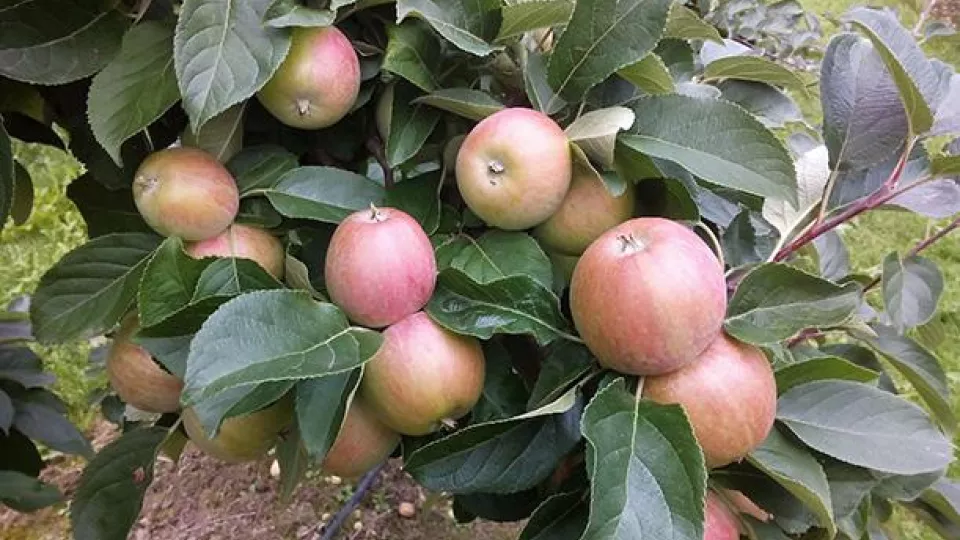The researchers excluded or added extra pollen by hand to see how it affected the apple harvest. Normally, honeybees, bumblebees and wild bees pollinate apple crops, and thus they do the growers a great service as fertilization by hand is too time consuming and expensive.
“I hope this study will raise awareness of how important pollination and especially pollination with compatible pollen can be, partly because it increases the apple harvest, but also because it contributes to increased storage time for producers and because it improves characteristics that consumers like,” says Ulrika Samnegård, researcher at Lund University and University of New England, Australia, and who partly did the research as she worked at Stockholm University. Other reserachers who contributed to the study is Henrik Smith at CEC and Peter Hambäck, Stockholm University.
Changed mineral balance
When pollinated with a sufficient amount of compatible pollen (pollen from another corresponding apple variety), the concentration of certain minerals and especially the balance between potassium and calcium in the apple changes. This change in the potassium and calcium balance is what scientists believe reduces the risk of apples developing storage diseases. The study also shows that apples become firmer, which is linked to qualities that apple eaters appreciate.
“Our study showed that pollination on the farms can be improved. Therefore, I hope that it will encourage growers to work to get more wild pollinators to the farms, as they are often very effective pollinators due to their own power, but also because their presence is likely to increase the efficiency of honey bees,” says Ulrika Samnegård.
The researchers also think that more research is needed on how to optimize the placement of apple varieties within plantations to facilitate the distribution of pollen between compatible apple varieties and thus improve the effect of pollination.
Some advice
Tips and tricks for making the environment suitable for bumblebees and wild bees for your own apple tree.
Bees need food all season, so it's good to grow good plants that provide food when it's not apple season.
- Early flowering woody plants such as sallow, buckthorn, hawthorn and rowan are much appreciated by bumblebee queens and help them in the establishment phase.
- Flowering herbs, such as wild meadow plants and cultivated red clover, provide good food later in the season.
Bees also need settlements and opportunities to survive during the winter which can be created by
- If you have stone rubble and stone walls, keep them
- Leave the edges around the cultivation untouched so that tall grass and tufts can grow
- Leave areas of bare sand ground as these sites are perfect for the mining bees nest building. Other bees build nests in cavities in dead wood or in bi-hotels.
The study is published in the scientific journal Royal Society Open Science and entitled "Pollination treatment affects fruit set and modifies marketable and storable fruit quality of commercial apples".
